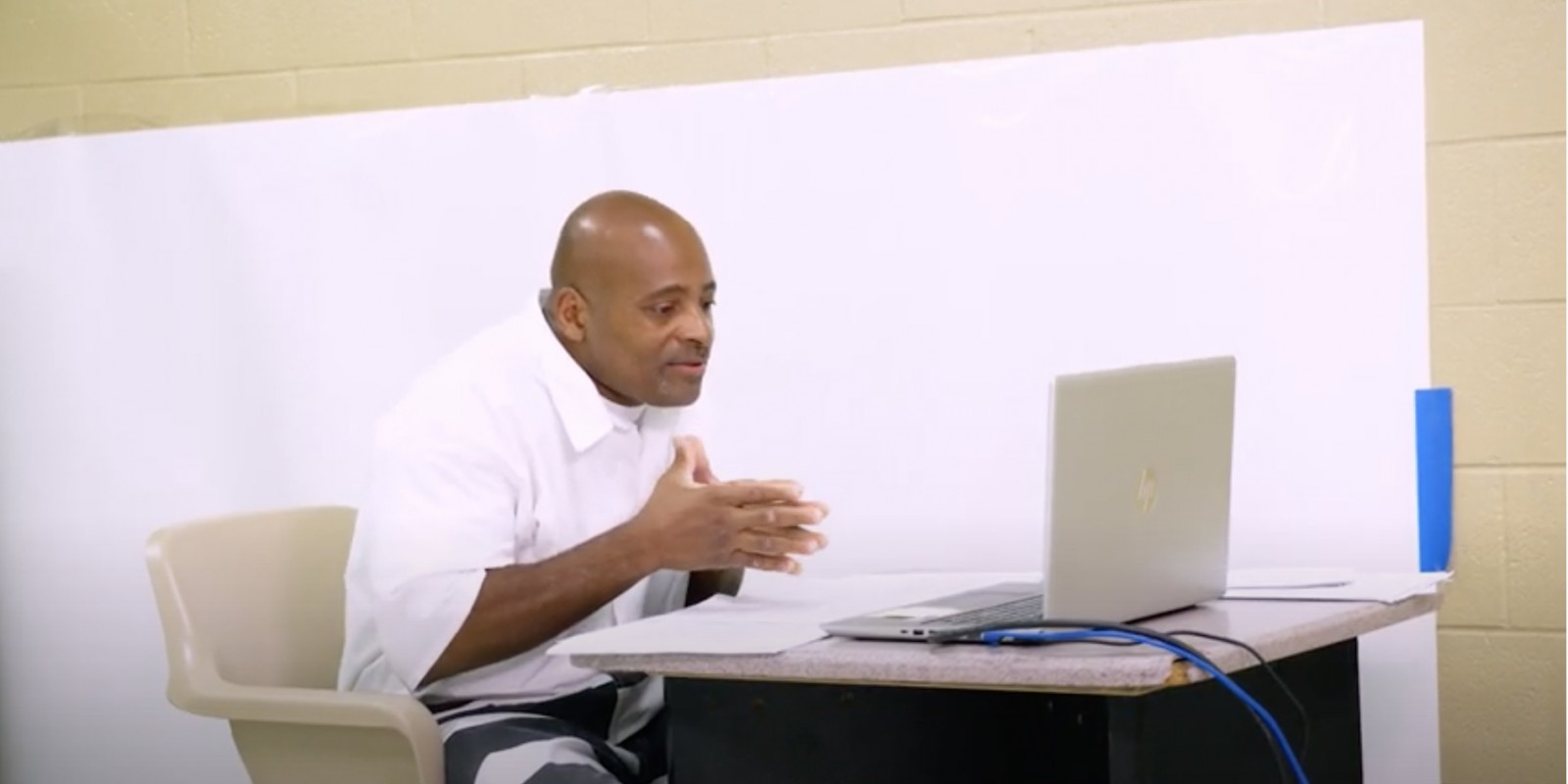Freeing the mind: Professor, prisoner participate in conference panel

Binghamton University History Professor Leigh Ann Wheeler heard the harsh clang of the metal doors echoing behind her, and knew she had entered an utterly unfamiliar world.
The guards searched her for hidden contraband. Finding none, they left her to wait in a classroom until they brought in the man she came to see, wearing a white shirt and striped prison pants, a book and a stack of papers in his arms.
Glen Conley II, then an inmate in Mississippi’s Wilkinson County Correctional Facility (WCCF), is serving a life sentence without parole. But the Louisiana man is also a poet and now a scholar who presented his first paper, “Coming of Age to See Things Differently: How Whites Influenced Anne Moody’s Decision to Fight Social Injustice,” at an online conference this spring.
“It was an unprecedented opportunity, considering that no inmate in this state had ever done it before,” Conley said of his conference presentation. “I was honored to have my research recognized by other scholars and professors in academia; I welcomed the challenge of having to defend what my research concluded.”
Wheeler met Conley while researching Moody, a Civil Rights activist and author of the 1968 memoir Coming of Age in Mississippi. The African-American woman was born in 1940 to sharecropper parents in Wilkinson County, located in the southwestern part of the state. While conducting research, Wheeler learned about WCCF’s Anne Moody history project, which introduced prisoners to the activist’s work through a book group.
Wheeler began corresponding with Conley in 2018, and agreed to write a foreword for a book of poetry about Moody that Conley self-published. After securing permission from the state of Mississippi, Conley contributed a paper proposal for a panel that Wheeler organized in 2019; that panel was accepted by the Berkshire Conference of Women Historians for its spring 2020 meeting. That March, Wheeler met Conley face to face for the first time when she was in Mississippi for research. She was Conley’s last visitor before the pandemic lockdown took hold.
“We could have talked all day. We just had a fantastic conversation,” she remembered. “Glen has read the book so closely and thought about it so deeply that he had actually come to some conclusions about Anne Moody that I only figured out because I’m able to do archival research on the outside.”
Sadly, the pandemic canceled the 2020 conference. Not to be deterred, Wheeler found it a new home the following spring: The Western Association of Women Historians Conference, held online in April.
Conley first needed to obtain permission from the Mississippi Department of Corrections to participate, which he did from the facility. The focus of Conley’s paper first raised the eyebrows of the panel chair, University of Minnesota Regents Professor Emeritus of History Sara Evans; Conley, it should be pointed out, is Black. Evans was Wheeler’s doctoral advisor, and first introduced her to Moody and Coming of Age in Mississippi in the early 1990s.
“As I learned about the extremely racist society in which Anne Moody lived during the Jim Crow era, I wanted to know what inspired her decision to fight for social justice. In my quest for answers I discovered that the white people for whom she worked afforded her a glimpse into a better and unfamiliar world, a discovery that prompted Anne to imagine (and advocate for) a life of social equality between Blacks and Whites,” Conley explained. “I wanted to use Moody’s story to demonstrate the fact that working together as one people is a better way of fighting social injustice than a separatist approach that places one group of people at odds with another.”
Scholarship can be difficult in a prison setting, although Conley has had some practice: During his time behind bars, he finished his associate and bachelor’s degrees through the New Orleans Baptist Theological Seminary, and is currently working on a master’s in theological studies through NationsUniversity.
Prior to the panel, Wheeler edited Conley’s paper through the mail and also created a PowerPoint presentation for him. Conley’s mother attended the online panel, the first time they saw each other since the start of the pandemic.
Their collaboration continues, although Conley has since moved to a different prison. He continues to conduct research into Moody’s life and contributions, as well as a series of essays that Wheeler hopes to publish in an anthology she’s working on with colleagues at other universities.
“Now he’s going to write an essay on teaching Coming of Age in Mississippi in a prison,” she said. “The book is taught all over the country in high schools, colleges and universities, but no one has ever written about teaching it in the context of a prison before.”
Inside the walls
The experience changed Wheeler, too. She donated 50 copies of Coming of Age in Mississippi to WCCF’s Anne Moody history project, and is interested in learning more about prisons and perhaps teaching in one someday.
“We’ve been educating each other about our worlds and our perspectives, and we’ve been having really rich conversations about race,” she said of her interactions with Conley.
Conley has spent more than 24 years behind bars, and communicates with Wheeler mostly through letters. However, communicating with the outside world is costly and surveilled; every letter is read, every call recorded. Scholarship can be difficult, since inmates face significant restrictions on information access.
Permitted only to mail five pages at a time, Wheeler often has to split up academic articles into different envelopes, for example. Paperback books can only be sent to inmates directly through the publisher or Amazon.
“It’s hard to imagine living that way,” she said. “I have a deeper feeling of empathy for people who are incarcerated that I couldn’t have had before this experience.”

